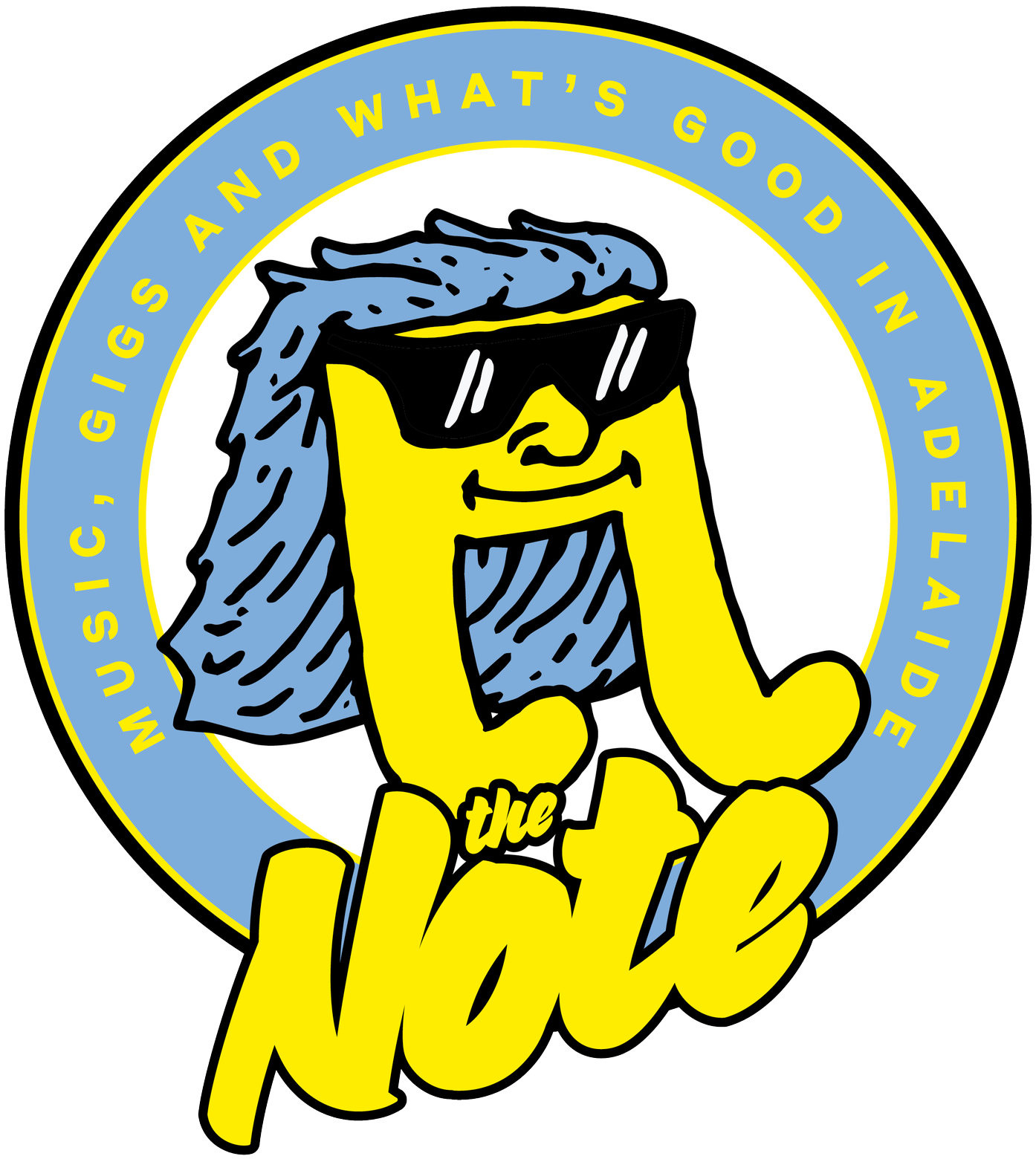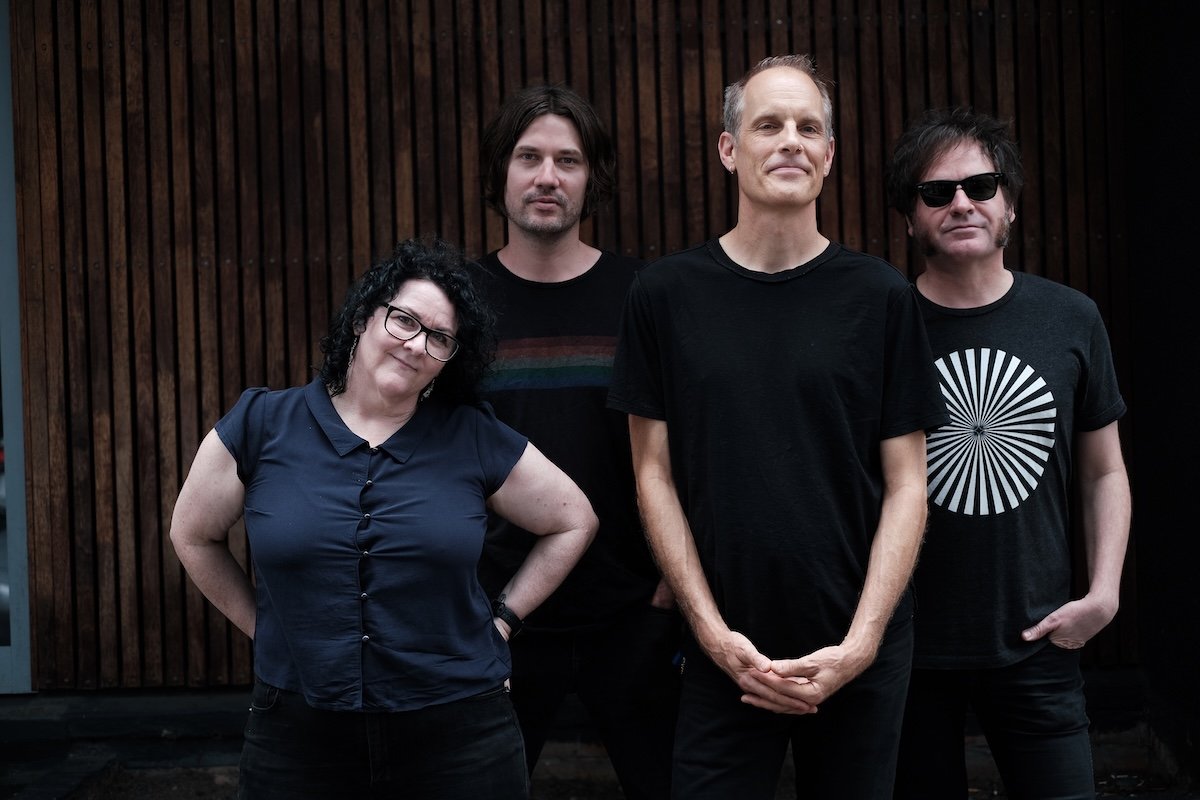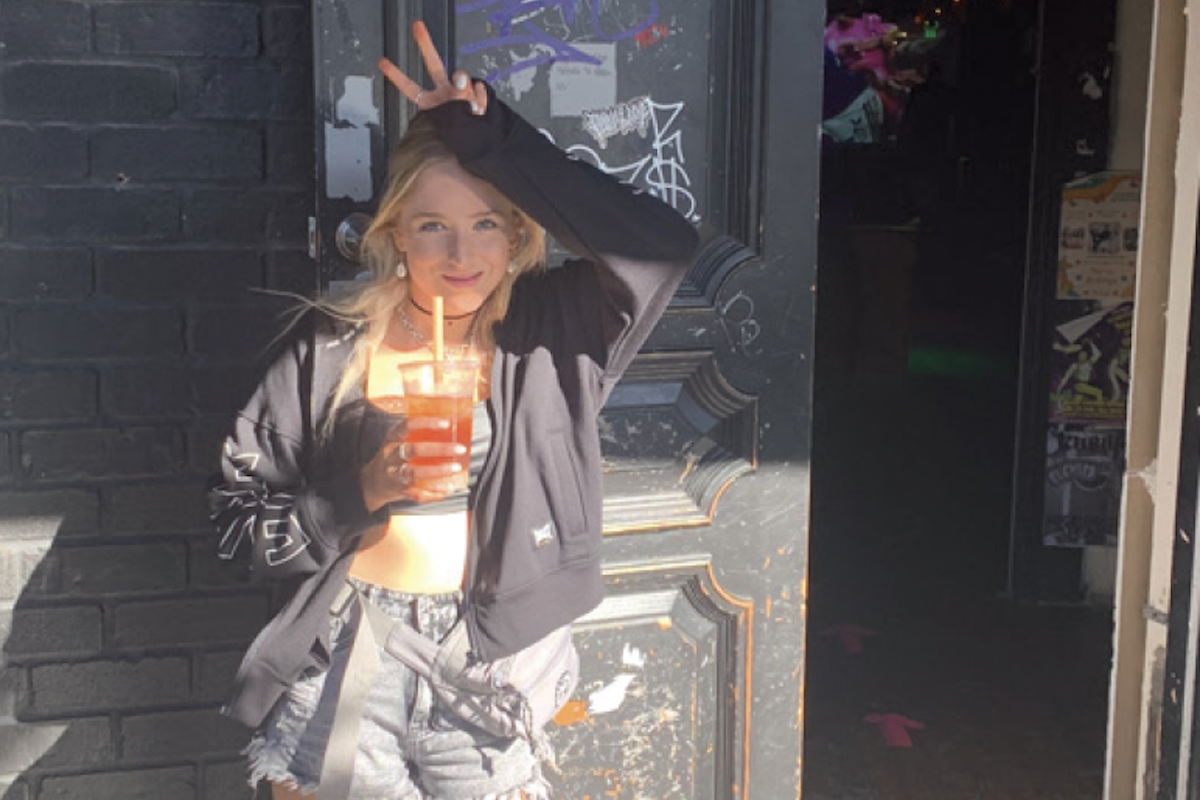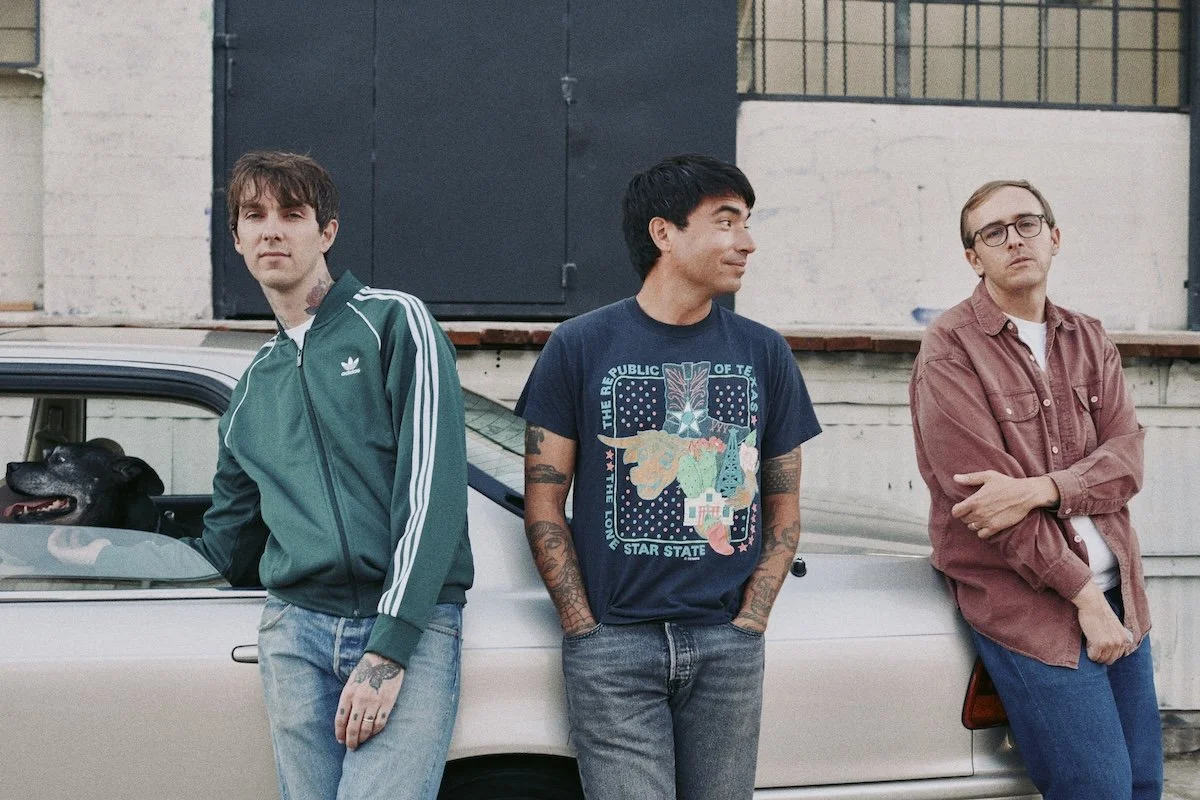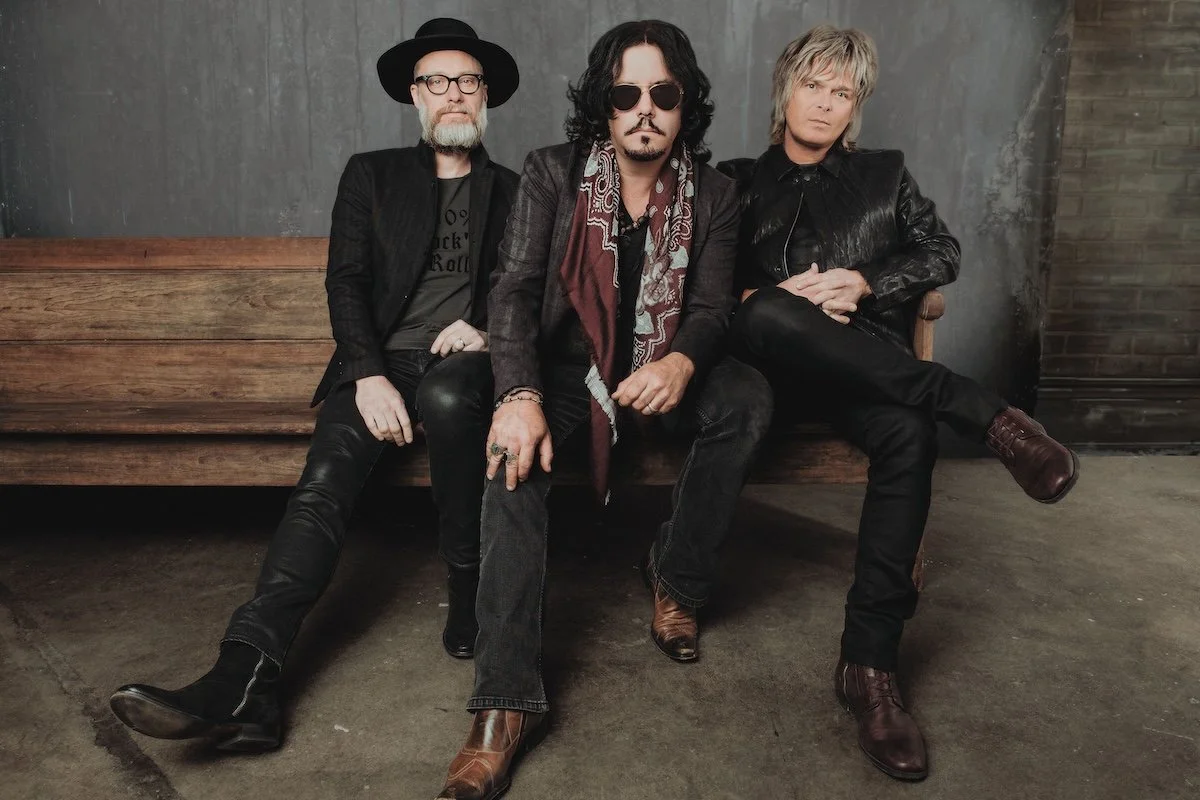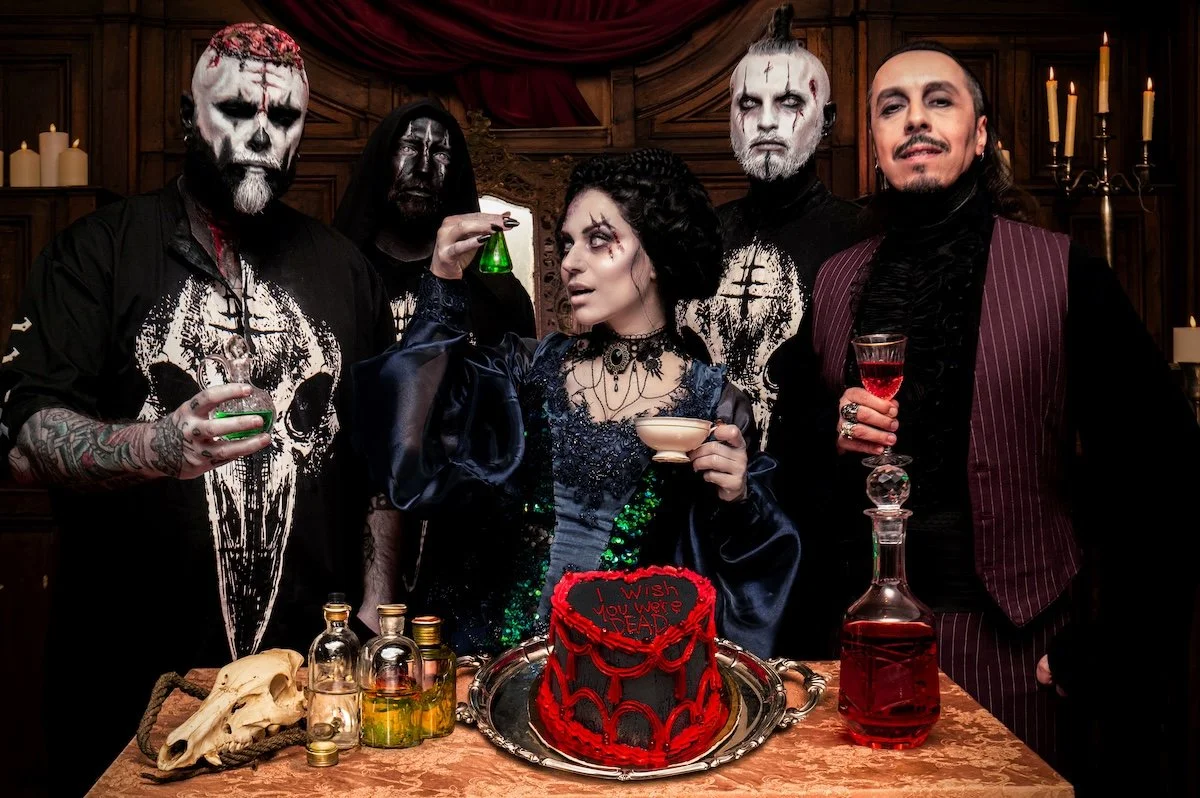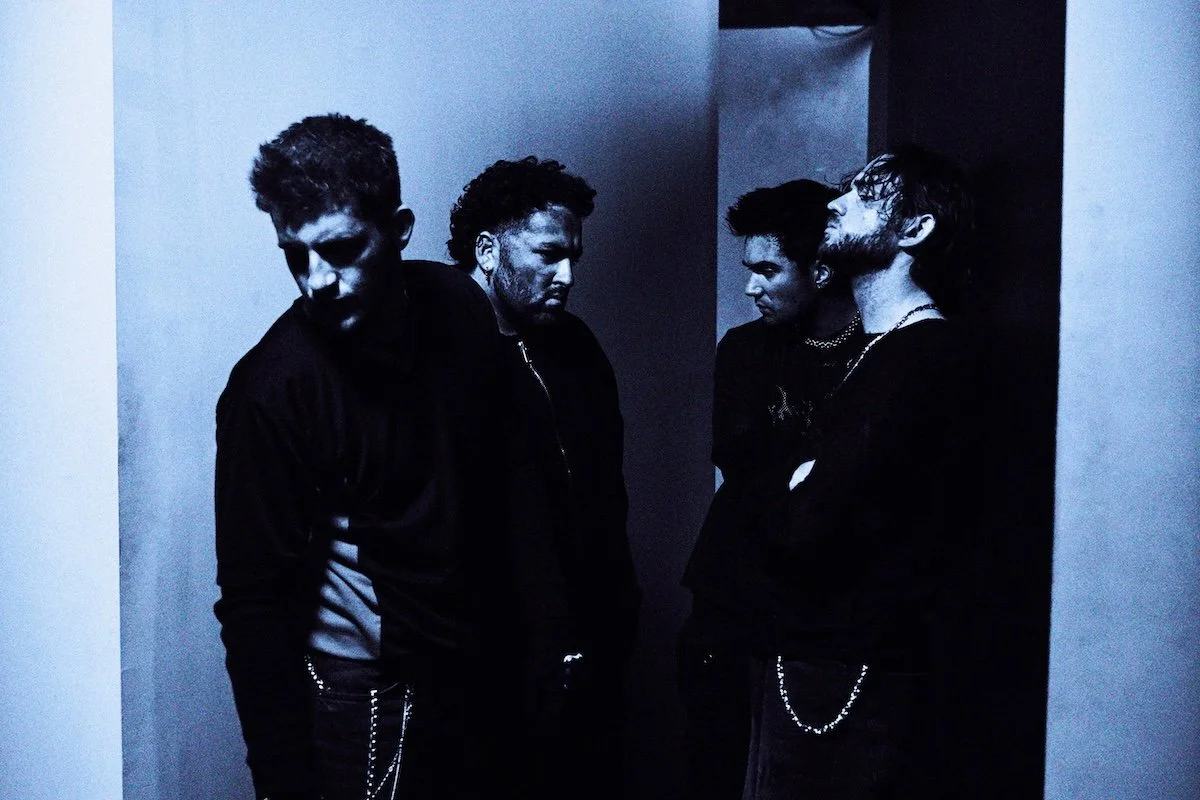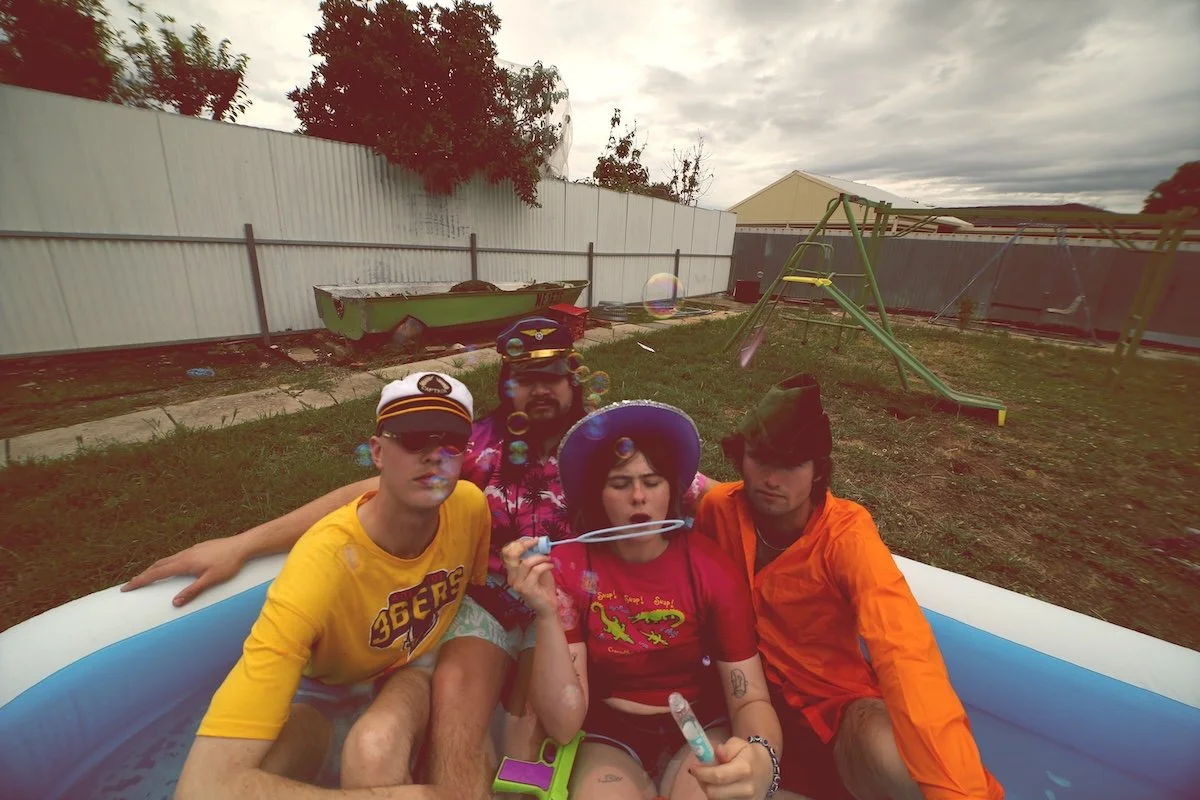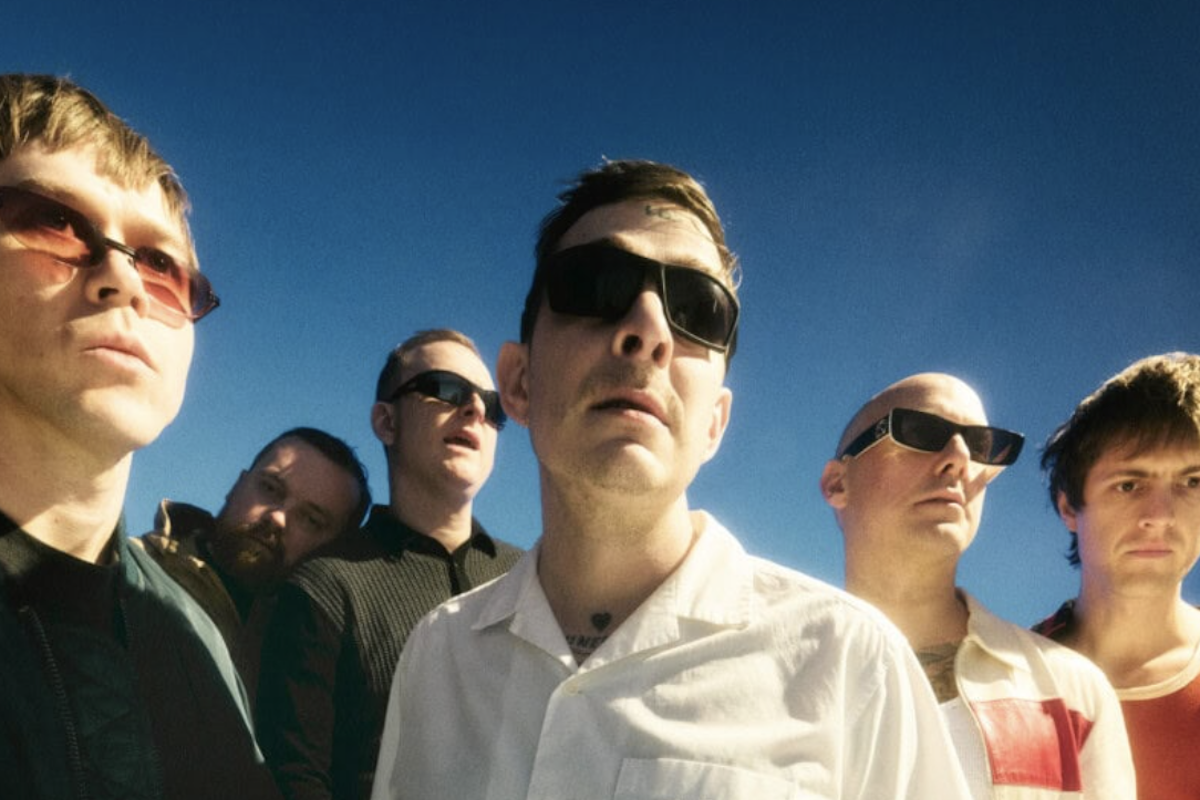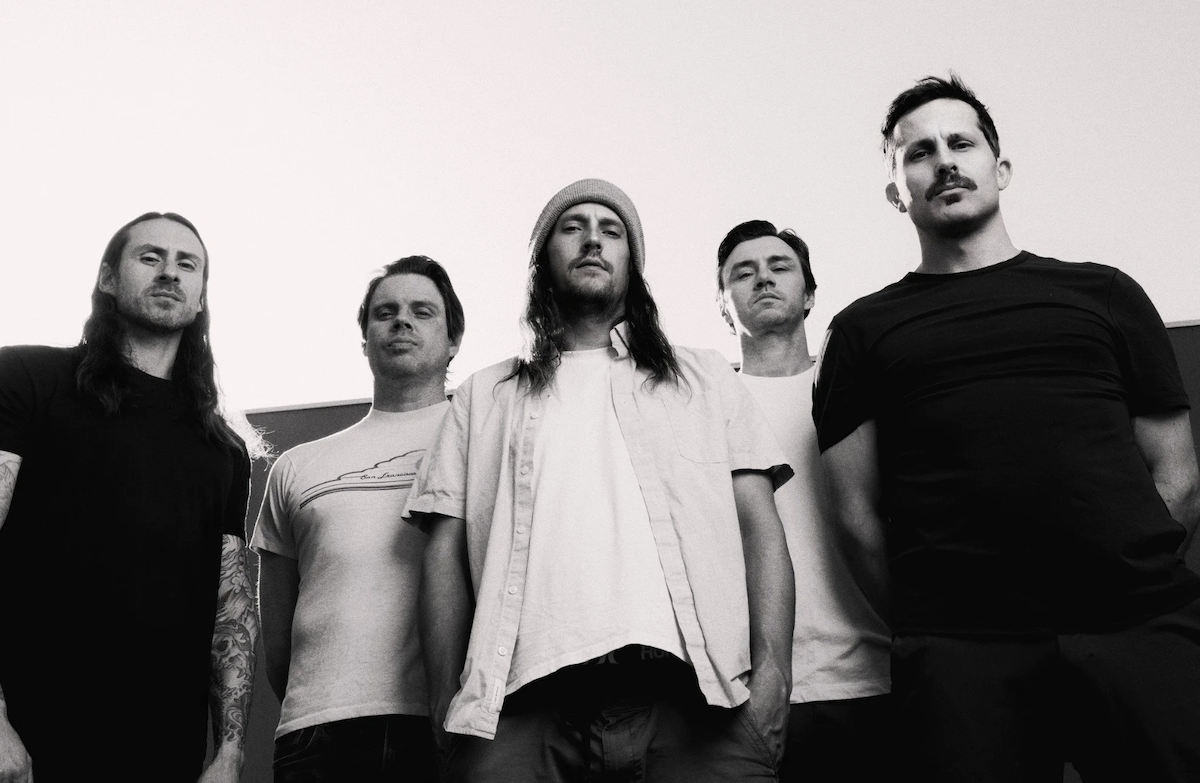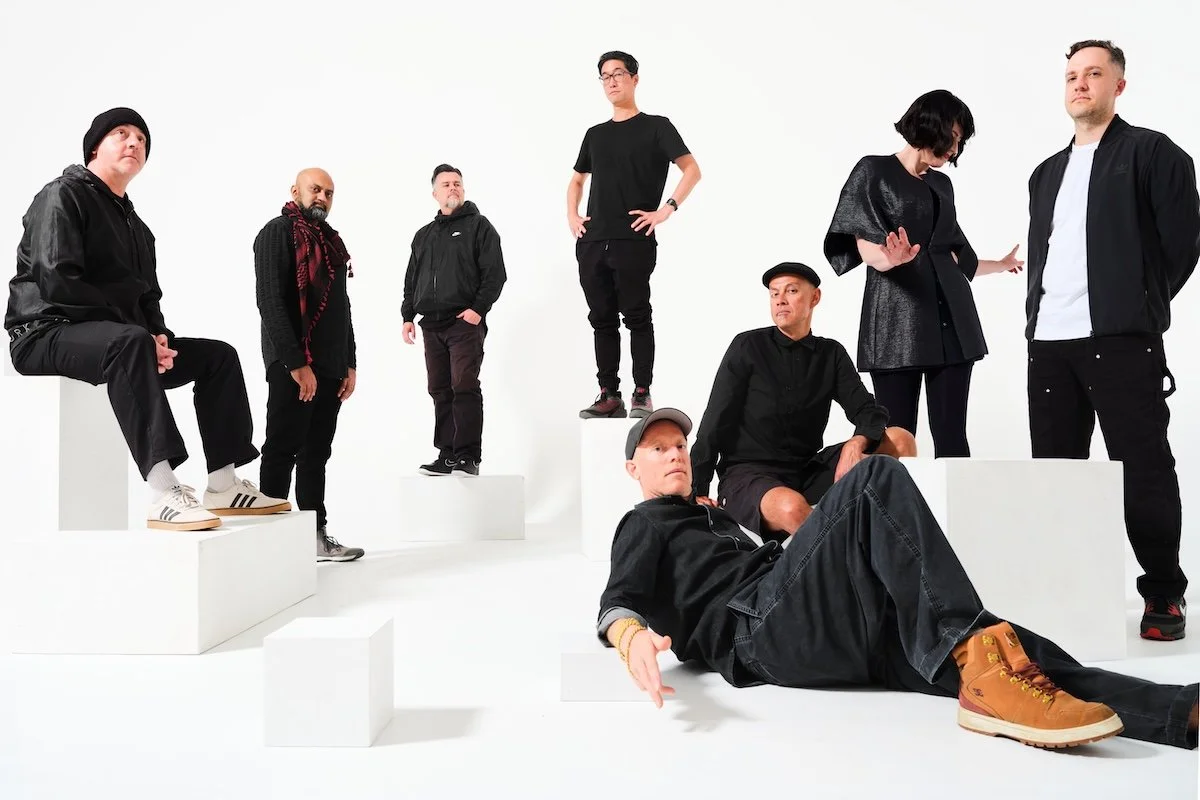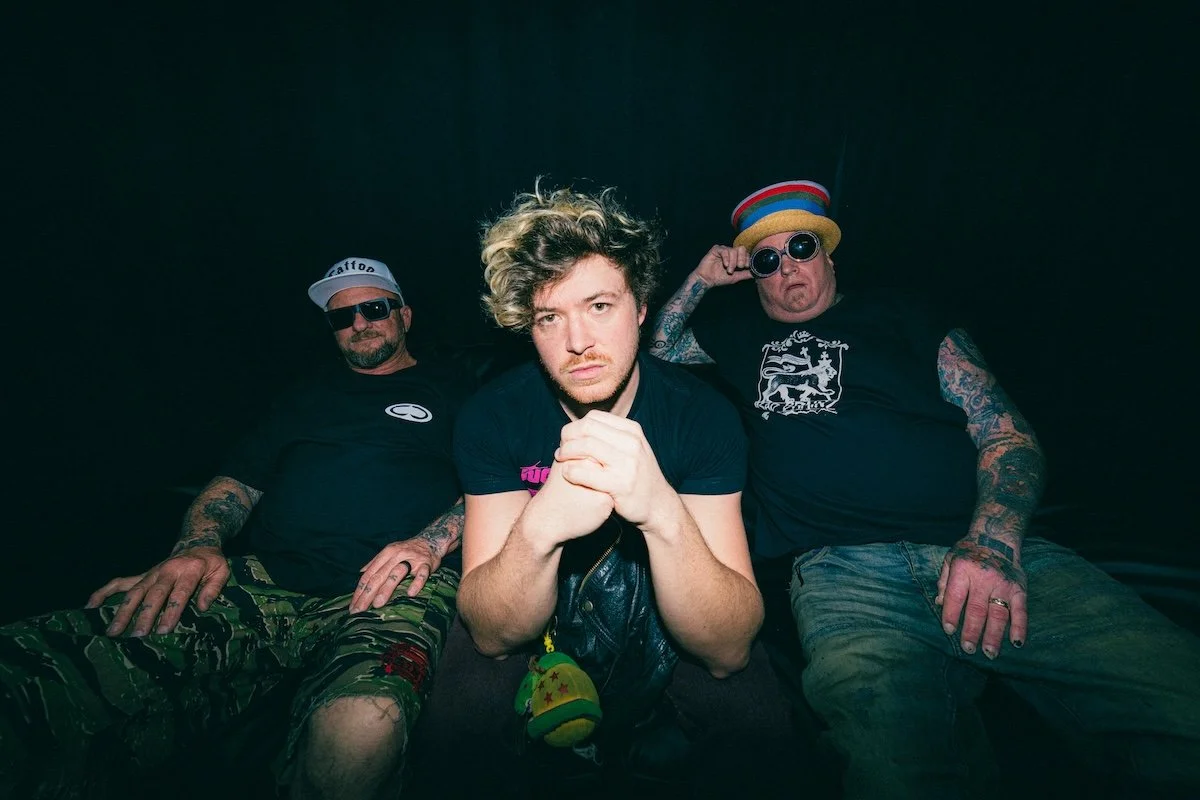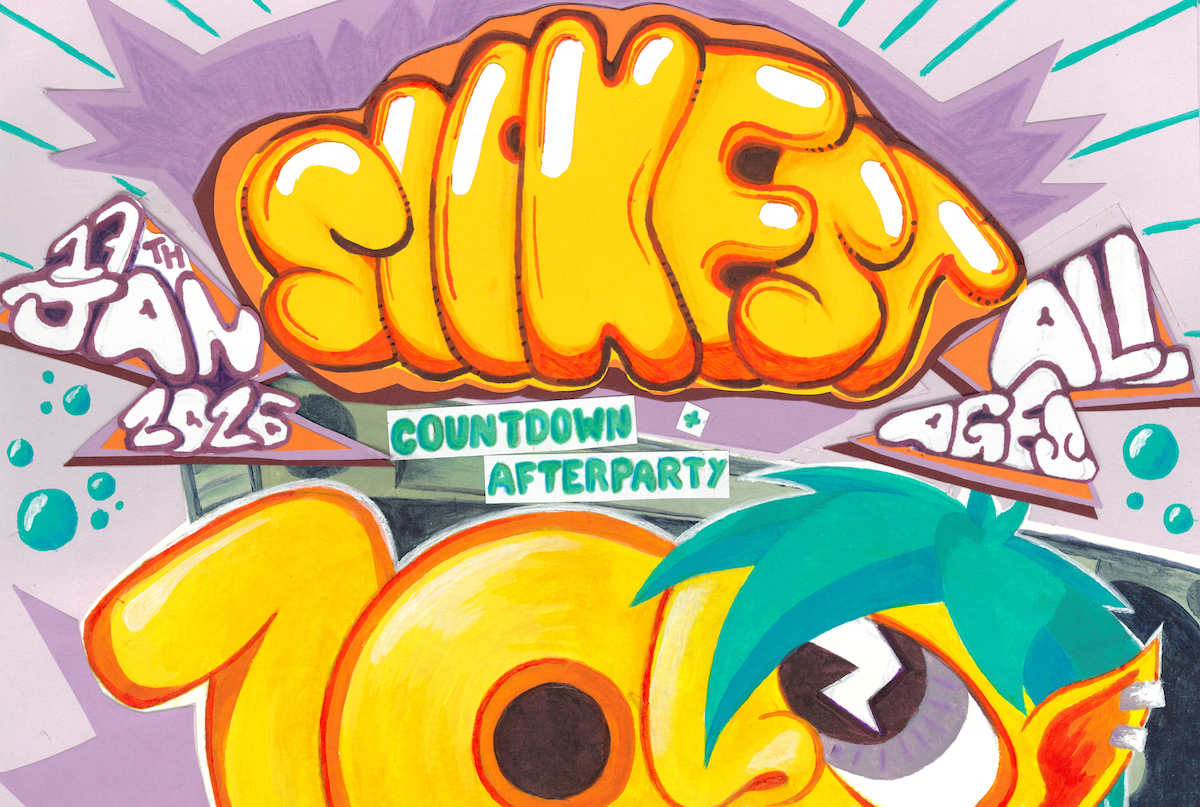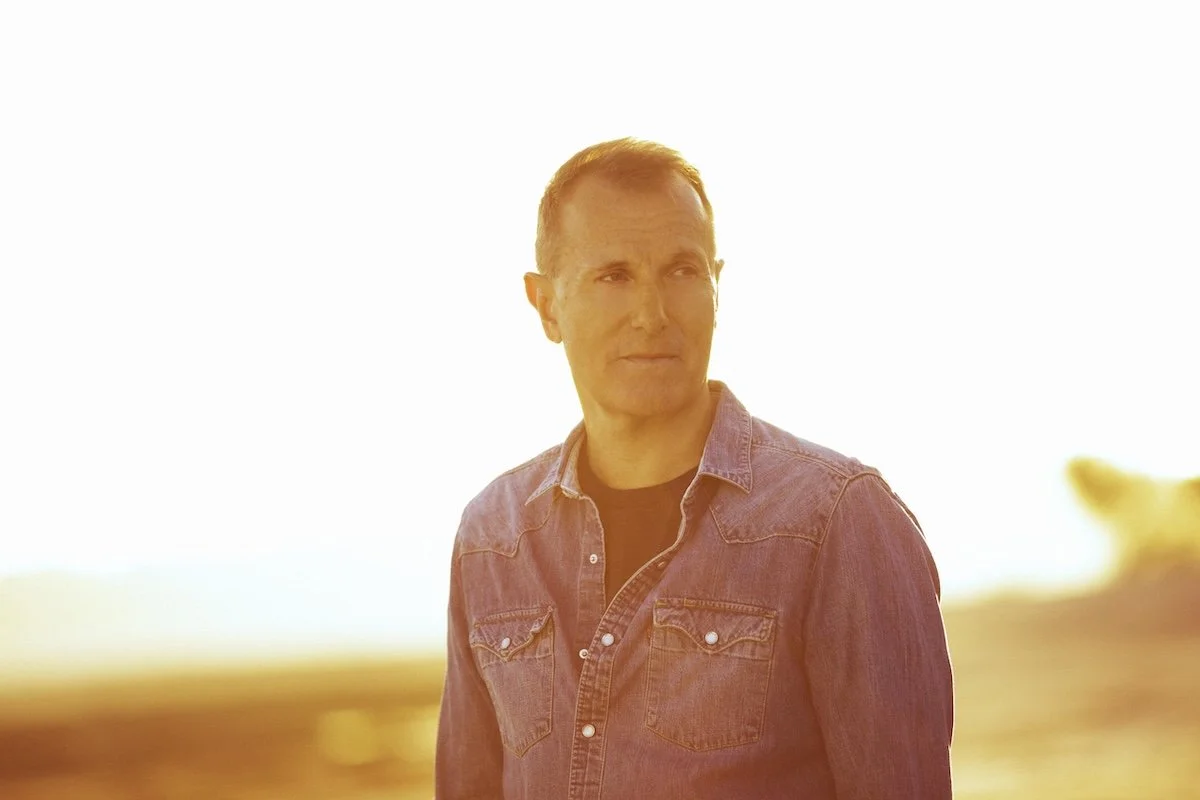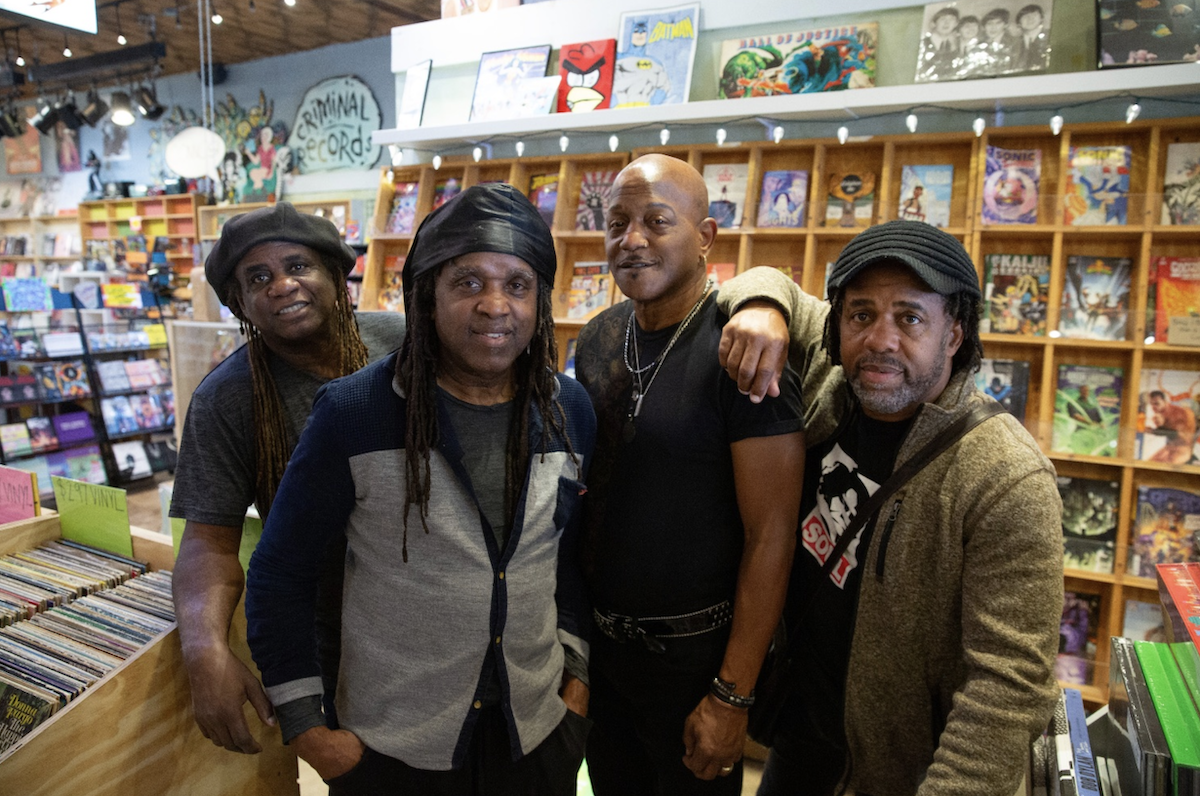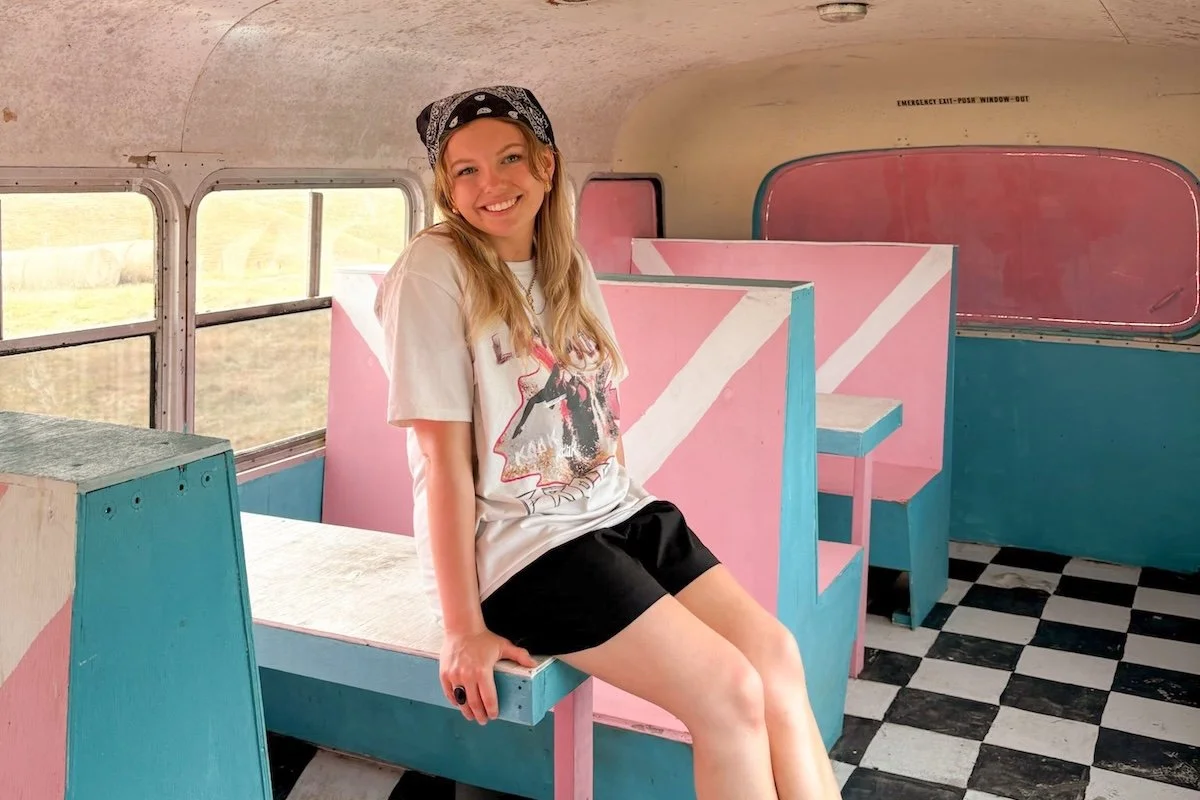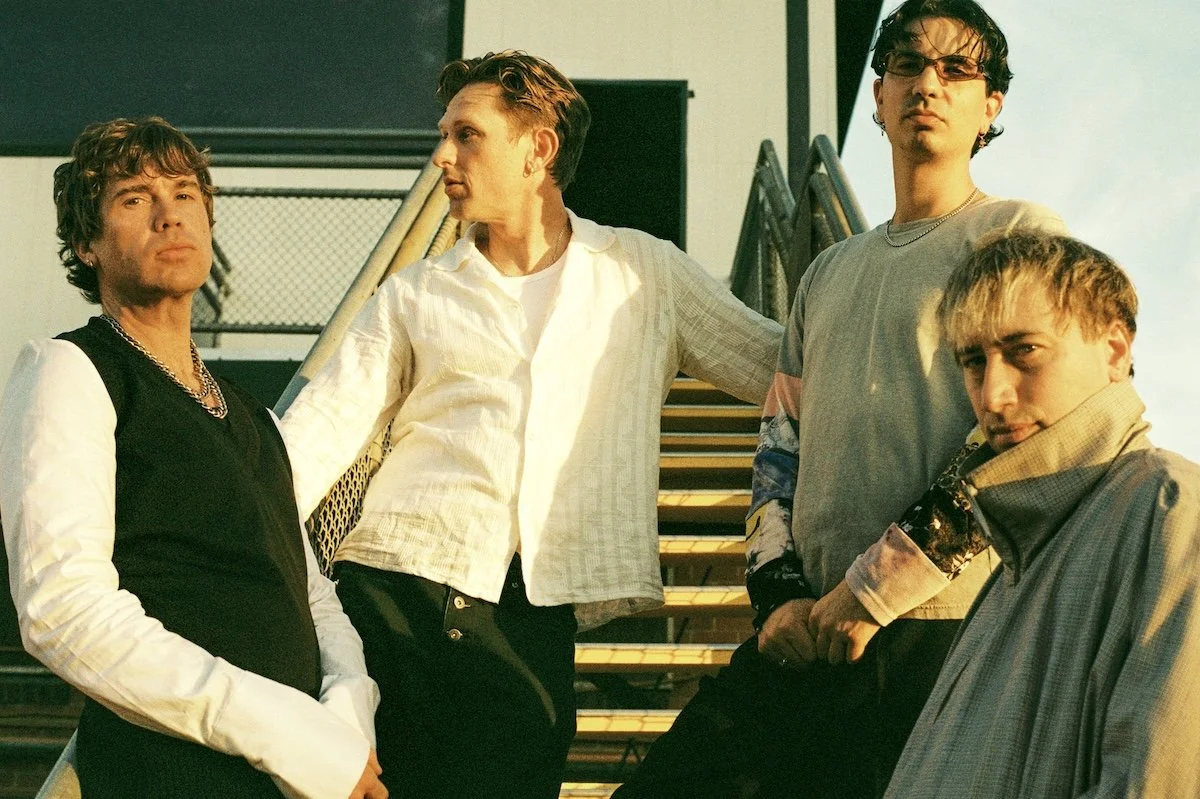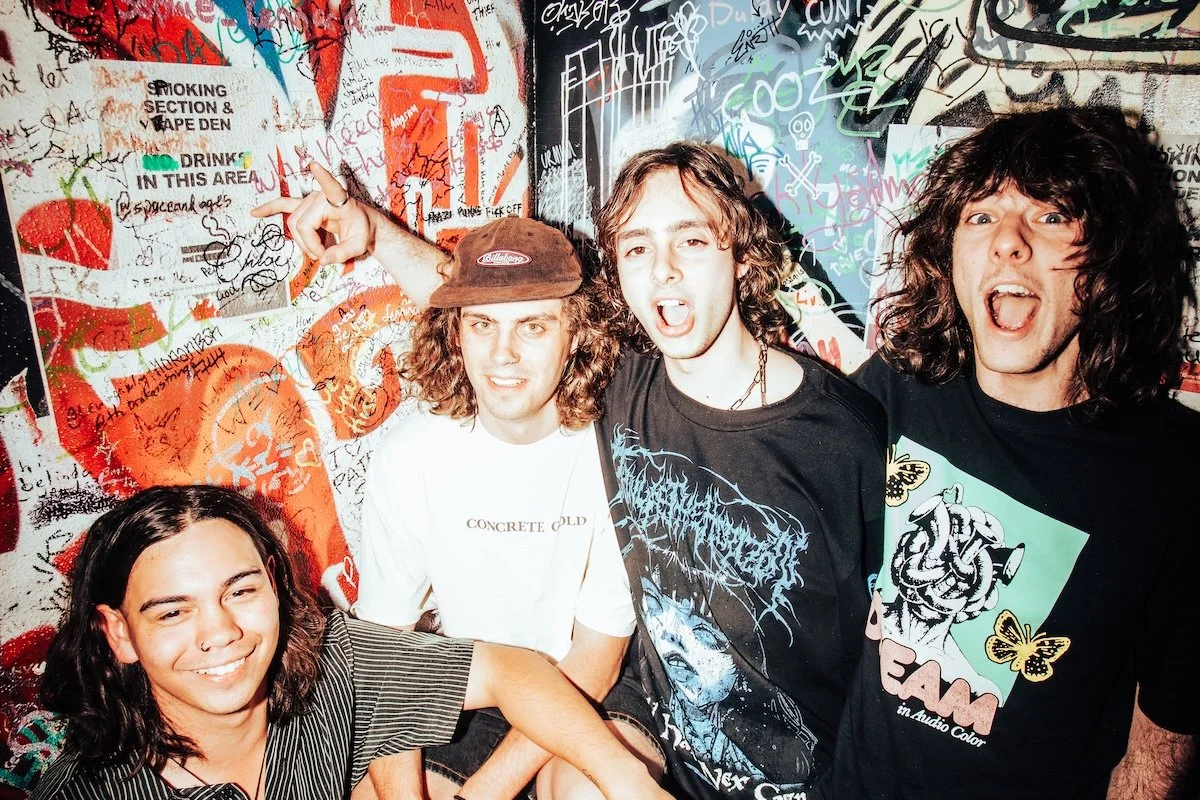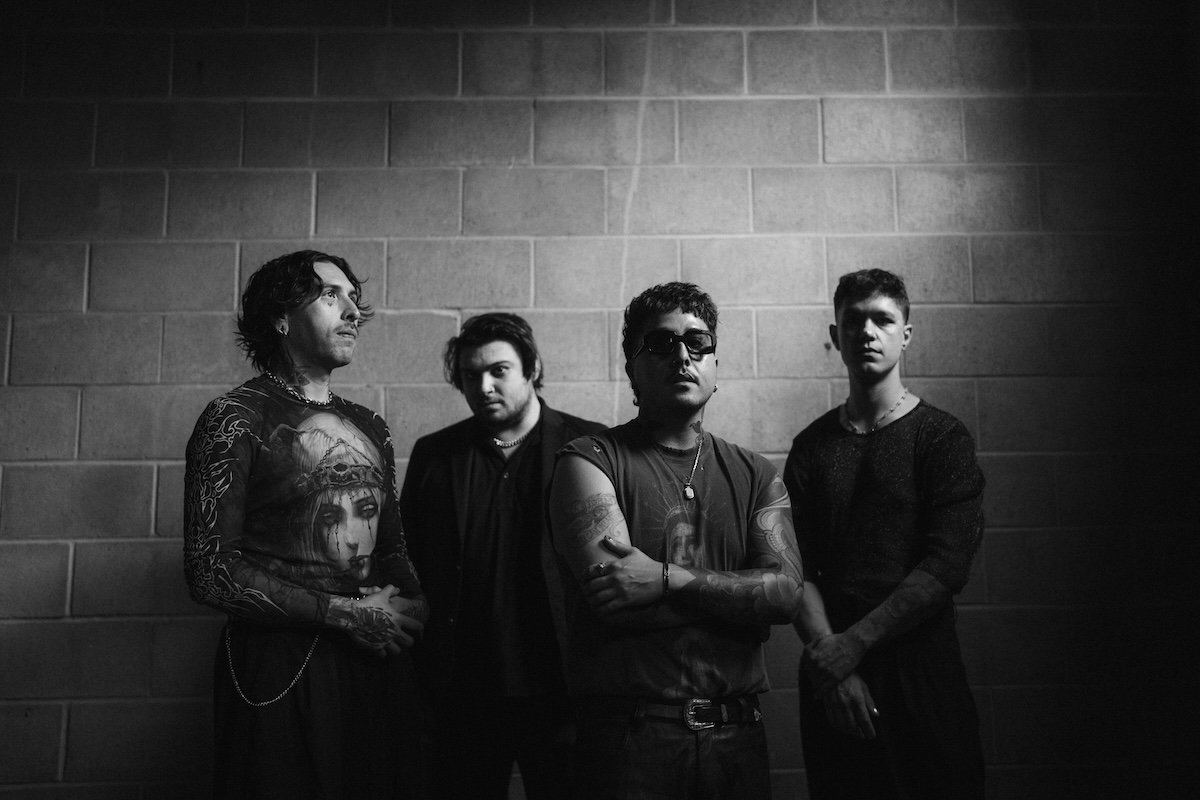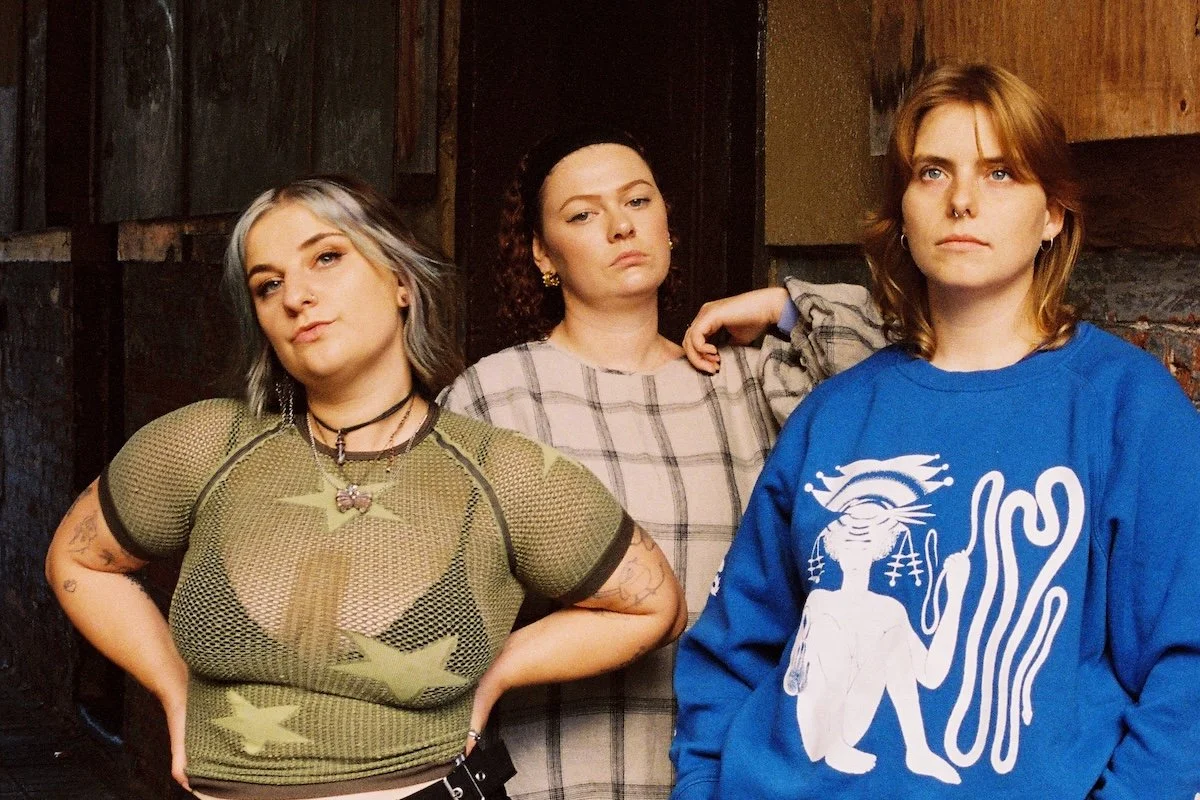Screamfeeder: The Ending Goes Forever
Emerging from the Aussie alt-rock scene of the early ‘90s, Screamfeeder captured the hearts and minds of audiences with their blistering riffs and energetic live shows. Ahead of the release of the band’s documentary, The Ending Goes Forever, The Note chatted with frontman Tim Steward about Screamfeeder’s beginnings, the band’s failed American experience and why now is the right time to tell their story.
Interview Tobias Handke // Image supplied
There are few Australian bands as underrated as Screamfeeder. Originally made up of vocalist and guitarist Tim Steward, bassist and vocalist Kellie Lloyd and drummer Tony Blades, Screamfeeder took the Brisbane music scene by storm in the early ‘90s.
In the space of five years, the band released four acclaimed albums – Flour (1992), Burn Out Your Name (1993), Fill Yourself with Music (1995) and Kitten Licks (1995) – and established themselves as one of the country’s premier live acts.
But just as global success appeared on the cards, their international label deal fell apart, and Screamfeeder found themselves lost in the shuffle of 00s guitar acts that dominated triple j airwaves.
Despite the disappointment, Screamfeeder have always stayed true to themselves and continued to perform and release albums, with their most recent being 2022’s Five Rooms.
The band’s most recent endeavour is The Ending Goes Forever, a fascinating doco chronicling the highs and lows of Screamfeeder’s journey featuring never-before-seen footage of the band and interviews with critics, fans and Aussie rock royalty, including Magic Dirt’s Adalita and Regurgitator’s Ben Ely.
Ahead of the Adelaide premiere of The Ending Goes Forever at The Piccadilly on Thursday, June 5 (tickets on sale now via humanitix.com), The Note chatted with Steward about the. doco, the band’s early years and what the future holds for Screamfeeder.
First off, congratulations on the success you’ve had with Screamfeeder. It’s incredible to think the band has been together for over 30 years. What’s the secret to the band’s longevity?
We never put too much pressure on ourselves and we try to keep it fun. Whether this has been entirely beneficial in terms of commercial success is debatable, but it’s definitely kept the band together and making music for most of that period. We never got hugely successful either, so we never had too much pressure on us from outside forces.
Returning to the beginning, Screamfeeder emerged during the rise of the Australian alt-rock scene of the ‘90s. What are your general memories of that time and the early days of the band?
Just incredible innocence and naivety – in the best way. They were simpler times and cheaper times where it was incredibly easy for anyone with an ounce of enthusiasm, the willingness to take a chance, and a bit of a work ethic to forge their own path.
During that period, Brisbane was a hotbed for rock music. Powderfinger, Regurgitator, Not From There, Rhubarb and many more acts emerged during that time. It must have been incredible to be surrounded by so many amazing bands. Was there a sense of camaraderie amongst the bands?
There was, but for us, we always felt one-step-removed, for the simple reason that we were always out touring. We felt camaraderie with a lot of national bands during that time. Spiderbait, Magic Dirt, Tumbleweed and The Meanies, who we literally saw more often than a lot of Brisbane bands. It was quite strange to come home and have a weekend off and go out and see bands like Custard in our local bars.
Within the space of a year of forming, Screamfeeder signed with Sydney’s Survival Records and released their debut album, Flour, which was well received by the music press and public. Were you surprised to have this much success so early?
Surprised is a huge understatement; we were so thrilled we could barely believe it. We’d been playing together for four years already (myself and our drummer Tony), and we’d tried so hard for so long for some label attention, and resolutely failed time and time again. With the benefit of hindsight, it was because we were pretty terrible for the first four years.
Before Survival picked us up, we’d already talked about packing up the band all together. For all our hard work, we seemed to be getting nowhere. When it finally did happen, it felt like a dream.
Flour was an incredible way to introduce yourselves. What do you remember about the making of the album and being in the studio?
To be honest, not much. It was a quick recording process back then, and we were very well rehearsed. Mixing was quick too, at least three or four songs a day. What we didn’t know was how to use a studio well, so the album is incredibly raw and rushed. Maybe that’s its appeal? I’m not sure. We did think far enough into the process to record to a click track and think about tempos. I wish we’d taken more time and just made it a little bit better. We weren’t very good at songwriting either – arrangements especially. Some of the songs are kinda janky.
Screamfeeder released three albums from 1993 to 1996 – Burn Out Your Name, Fill Yourself with Music and Kitten Licks. Was there any reason why the band was so productive over this period? Did you feel any pressure to keep releasing music to keep the buzz around the band going?
There wasn’t really any external pressure. We decided very early on that we’d follow the lead of US indie rock and punk bands in the ‘80s like Husker Du, Black Flag, etc., who would release an album, go on tour, write the next one, record it and go out on tour again, repeating this cycle as fast and as long as we could. It wasn’t an album a year as we would have liked, but it was kinda close. We just enjoyed working. We enjoyed writing, recording and touring, and just decided to go for it and waste no time.
Screamfeeder also became known for their live shows, with the band touring non-stop, as you mentioned. Is it all a bit of a haze these days, or can you still remember certain gigs or places you visited that stand out?
I can remember most of the gigs, but there are definitely some I have absolutely no memory of. We often went out drinking after playing a gig. We used to drive around the country in those early days. It was a lot of energy to expend. We barely stopped to think. Again, I wish we’d slowed down just a little and focused a little more energy on the finer points of touring and gig-playing.
READ MORE: Grinspoon: Whatever, Whenever, Wherever
The band performed at the Big Day Out four times during its heyday, including three years in a row from 97-99. What memories do you have of playing the festival?
The performances themselves were a bit stressful, having no soundcheck and playing on a far bigger stage than we were used to. It was always slightly harder to gauge audience reaction – we were so used to the more intimate gigs. The backstage and partying was always top shelf, as well as getting the opportunity to watch our favourite bands from the side of stage – that was pretty amazing! Security was kinda loose back then, and it was fine to grab a couple of beers and watch someone’s set from the wings.
How instrumental was the Big Day Out in helping support and introduce new bands to Australian audiences, and do you have any thoughts on the current live music climate and how things can be improved to make sure the festival scene continues to thrive?
That’s a bit too big a question. Regarding the first part, I guess it was a pretty great platform for introducing those mid-level bands (not the big headliners) who might have passed audiences by pre-Internet. Acts like Superchunk, Violent Femmes, even bands like Rancid, who people may have heard of but not heard, really got a chance to blow people away on a decent stage. So yeah, that was kinda great.
There have been a few lineup changes over the years with Screamfeeder, with one of the most significant coming when Tony Blades left in 1994 and was replaced by Dean Shwereb. That must have been a tough blow, especially with the band on the rise. How did this impact Screamfeeder both on a personal and creative level?
Personally, it was hard. In the film (The Ending Goes Forever), we all talk about that period quite intensely. It was very uncomfortable for all of us. Tony is very honest and philosophical about it all in the film, however, he really has the benefit of hindsight and understands what happened and why. I don’t mean to imply he’s ok with it – I’m sure he wishes it didn’t happen, but he’s still very good about it. His interviews are some of the most engaging and insightful in the whole film.
Creatively, it was a fresh start; it opened a huge new door for us with Dean. Kellie finally found her place in the band as far as singing, and the results speak for themselves – we wrote most of Kitten Licks during Dean’s first six months on the drums.
Shwereb recently parted ways with the band after 25 years, with Screamfeeder bringing in Phil Usher. What has he brought to the band in the short time he’s been with you?
He’s brought a freshness and a step-up in energy again, which is really refreshing and needed. We’ve all been around the block a few times, and it’s easy to get a bit lazy or get jaded with going to band practice. Phil gees us up and keeps us on our toes. He is very engaged, helping out by suggesting vocal parts and never saying no to anything. He’s a good conversationalist, smart, funny and experienced. He knows that being in a band is about working and not complaining and being there for the others. He’s always the guy dragging us around town at 2am after a gig because he heard about this little bar tucked away somewhere!
The release of Kitten Licks in 1996 saw Screamfeeder draw attention from American record labels, and it looked like the band were set to become Australia’s next big thing overseas, but things didn’t pan out that way. Talk us through that time and what ultimately led to the band not continuing with an international label.
The label was Time Bomb in LA. In the end, we were just so used to operating on our own schedule and to our own rhythms that we found it impossible to work towards their demands. They wanted us to hang back forever with the recording and release of our follow-up album, which we felt would affect our momentum terribly, hence the in-between singles and covers record. They were all excited about getting huge results on radio with ‘Static’ and ‘Dart’, which didn’t really happen as much as they anticipated, so things cooled off for them too.
I think, looking back, that they didn’t really care too much. They were just trying something out, and if it didn’t work, it was really no skin off their nose. Our manager at the time pushed for the deal to end, and it did, albeit with us accepting barely any financial recoupment for them ending the deal earlier than what was contracted. A weird time, but we had learned by then not to get too excited about things until they really happen, so we kinda took it in our stride.
Do you have any regrets about not moving forward with the deal, or do you think it helped solidify your place in Australian music lore?
No regrets regarding that particular deal, but we did seem to have a knack for missing out on American opportunities, which is a bit sad. As for solidifying our place, as soon as ‘Hi Cs’ came out, that was it; we felt solidified. After that, ‘Triple Hook’ also got great airplay as well as the next half dozen singles – ‘Above The Dove’, ‘Ice Patrol’, ‘I Don’t Know What To Do Any More’, ‘12345’ and ‘Bunny’. We were touring constantly again and felt busy and validated.
READ MORE: You Am I: The Hi Fi Way
Screamfeeder’s most recent release is the box set Demolition (4CD set or 2LP collection), which features a stack of unreleased material, demos and instrumentals. What was behind the release of this epic collection?
It came about because I’m a big archivist, and I did my best over the years to keep every demo we recorded and every song we tried to write. Still, some songs fell through the cracks; most of the Kitten Licks demos are lost forever, unfortunately. There were a few songs where I found I had parts missing, so I’d be redoing the bass or guitar to get it to the point of being listenable.
It’s really an alternative record of a band’s presence and their music-making, the underneath of what you normally see. Lots of mistakes and failed ideas, but amongst all that, there are lots of great songs which got left behind, and lots of moments where you hear us as four humans just creating music on the fly with zero constraints. So much as it might not be a consistently easy listen, it’s a very honest record.
Screamfeeder are heading to Adelaide in June for the premiere of The Ending Goes Forever, a documentary tracing the band’s history. How has the film been received so far?
So far, it’s been brilliant. We’ve been really surprised [by] how much people get from the film.
What can fans expect from the film?
The main thing is that they will get to know the five humans who are - or have been - band members. Myself, Kellie and Tony especially. You really get to learn what we’re like, how dorky we are, and the weird and crazy stories of how we ended up forming a band together. There are some funny moments too – we’re real dickheads, goofing around drunk, talking shit, just being clowns in our own little bubble. The other thing is you’ll learn about the small failures we experienced along the way, all of which are very typical band-life things, but they make the story more interesting.
Why is now the right time for such a film?
I think if we don’t get the story out there now, it’ll be too late, our brains will start disintegrating and we’ll forget even more than we already have. Also, I feel that people look back on the late ‘80s and the ‘90s with such fondness at the moment. It was another lifetime ago, and the world was very different, a very innocent and sweet time. Most of the people who follow the band were really coming of age during those years, so it’s a very important time to be able to look back on and get that feeling again.
What was it like reliving the band’s history after all this time? Did it bring back good memories or mixed emotions?
Both. Mostly the former, but of course, there were uncomfortable elements. Tony was such a champ. He didn’t exaggerate anything or point blame at anyone. As I mentioned, he was just very honest and thoughtful about it all. The whole period in the ‘00s during which we kinda ground to a temporary halt was uncomfortable too, but the filmmaker Jacob (Schoitz) handled this chapter really well.
While in Adelaide for the premiere, you and Kellie are performing at The Golden Wattle. What can fans expect from the show?
We usually manage to make it through the songs intact, but as anyone who’s seen us knows, there will be plenty of sideways looks, a lot of laughs and a lot of humanity on display. A lot of talk about our merch, which we have to do, and possibly a couple of jokes if I can remember the correct set-up/punchline combinations. It’s kinda nice to play the songs not-so-loud for a change. It gives us a chance to sing them a bit better and communicate with the audience that much more personally.
Finally, what does the rest of 2025 have in store for Screamfeeder?
Honestly, it’s a bit of a weird time. We’re quite scattered at the moment, both geographically and otherwise. That said, we have decent gigs in the calendar already and want to write another album. We’ll take every day as it comes.
Screamfeeder’s The Ending Goes Forever premieres at The Piccadilly on Thursday, June 5. Tickets are on sale now via humanitix.com. Tim Steward and Kellie Lloyd perform at The Golden Wattle on Friday, June 6. Tickets are on sale now via humanitix.com.
